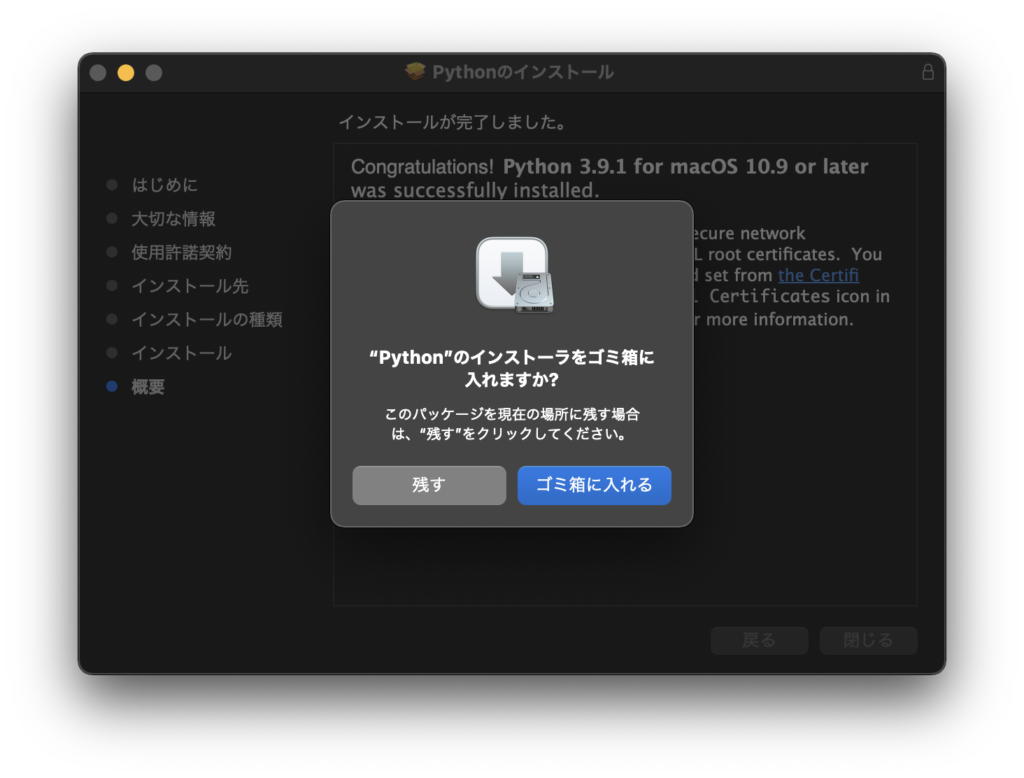
Allow curl time to download the script onto your Mac.In the Terminal, type curl -o get-pip.py and press Enter.Open the Terminal app via the Launchpad.
#Python mac m1 install install#
To use the get-pip script to install PIP on Mac: Otherwise, use one of the other methods instead.

You should only use this PIP installation script if you’re aware of the risks and you’re happy to proceed. Note: This script is safe to use, but we’d always advise caution about allowing an online script to run on your Mac. This is only available for Python 3 users. Using the PIP Installation Script on Mac for Python 3Īn alternative method for installing PIP on Mac is to use the PIP installation script ( get-pip.py).
#Python mac m1 install upgrade#
If you want to upgrade PIP, type python -m ensurepip –upgrade or python3 -m ensurepip –upgrade instead.Follow any additional on-screen instructions to complete this process. If PIP is missing, ensurepip will install PIP.In the Terminal, type python -m ensurepip or python3 -m ensurepip and press Enter.Open the Mac Terminal app via the Launchpad.This is the official method for installing PIP in Python, providing a secure method to install the application (if required).

If you’re using Python 3.4 or later, you can use the ensurepip command. Using the Ensurepip Method to Install PIP on Mac for Python 3 If you want to install PIP on a Mac, follow the steps we’ve outlined below. There are a few ways to do this, depending on your level of risk.
#Python mac m1 install update#
In /Users/copelco/projects/test/.direnv/python-3.7.9/lib/python3.7/site-packages/_cffi_ you’ve installed Python already, you may need to install or update PIP. Referenced from: /Users/copelco/projects/test/.direnv/python-3.7.9/lib/python3.7/site-packages/_cffi_ ImportError: dlopen(/Users/copelco/projects/test/.direnv/python-3.7.9/lib/python3.7/site-packages/_cffi_, 2): Symbol not found: _ffi_type_double Return _get_module_details(pkg_main_name, error)įile "/Users/copelco/projects/test/.direnv/python-3.7.9/lib/python3.7/site-packages/bcrypt/_init_.py", line 25, in Mod_name, mod_spec, code = _get_module_details(mod_name, _Error) Users/copelco/projects/./.direnv/python-3.7.9/bin/python: Mach-O 64-bit executable x86_64 It can be installed via Homebrew using Rosetta 2, but I've had trouble using it with my Django projects.įor example, I've run into issues with packages with external dependencies (such as libffi): Python 3.7 isn't supported on Apple Silicon. I've had the most issues with Python 3.7. So with Xcode's help, I'm currently running the following versions of Python using Homebrew and Xcode: Xcode's command-line tools provide several versions of Python that can run natively on Apple Silicon. $ brew install file Mach-O 64-bit executable x86_64 $ export PATH="/usr/local/Homebrew/bin:/usr/local/bin:/usr/bin:/bin:/usr/sbin:/sbin"

Additionally, not all Python libraries and packages run on Apple Silicon, so it's useful to install the Intel-emulated versions as well: Rosetta 2 is required for these versions. There are no plans to backport support to 3.7 and 3.6 which are in the security-fix-only phase of their release cycles. However, Issue 41100 indicates Python 3.7 and below will never be supported on Apple Silicon: opt/homebrew/bin/python3.9: Mach-O 64-bit executable arm64 ❯ brew install file /opt/homebrew/bin/python3.9 Python 3.8 and Python 3.9 install easily using homebrew:


 0 kommentar(er)
0 kommentar(er)
